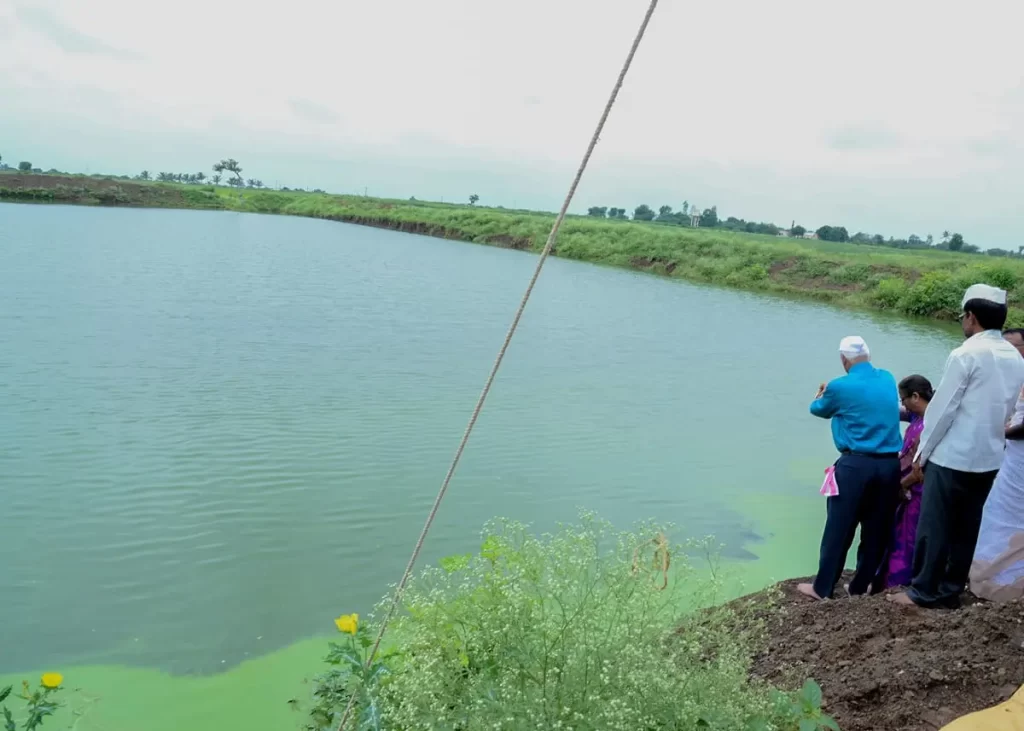- secretary@shrinareshrautfoundation.com
- +91 952 733 5912

Menu
Impact of Watershed Development @ Jalgaon, Rahata Tehsil, Ahmednagar District, Maharashtra

In a country like India where the population is growing at the rate of nearly 2% per annum and about 70% of its population is engaged in subsistence farming, watershed management assumes an exceedingly important role not only for the production of more food but also for prevention of degradation of land and water in the process. Except for two or three villages in the north and east of Jalgaon, all of the other are classified as drought-prone areas with uncertain rainfall. It rains heavily at times, but then it doesn’t rain for three to four years. Heavy rainfalls have also caused havoc on the area. Because the bulk of the people in this area is dependent on agriculture, their economic situation is risky. People are migrating to nearby cities like Pune, Mumbai, Nashik, and Gujarat as a result of these problems. When the situation becomes unbearable, farmers lead to commit suicide to end their suffering. Watershed Development can be the best solution to this hardship. Experiments with watershed management have so far yielded a rich dividend and provided valuable insight into the aspects of management of our natural resource base, particularly land and water. Watershed management is not a fad, it is intricately related to extremely beneficial to the lives of millions of farmers throughout the world.
The aim of the Project: • Increase cropping intensity and land equivalent ratio through intercropping and sequence cropping. • Safe utilisation of marginal lands through alternative land-use systems. • Ensuring sustainability of the ecosystem benefiting the man-animal-plant-land-water complex in the watershed. • Maximizing the combined income from the interrelated and dynamic crop-livestock-tree-labour complex over the years. • Stabilizing total income and cutting down risks during aberrant weather situations. • Improving infrastructural facilities concerning storage, transportation and marketing. Expected Outcome from the project: • Reduces soil erosion • Improves soil moisture • Reclaims vast tracks of eroded land • Reduces floods • Recharges groundwater • Revives greenery This project on the Integration of aquaculture in watershed management programmes has been planned to help the very poor to marginal farmers. It is necessary to educate the people about the new opportunities available for the effective utilization of the available resources and create responsibility for the protection, preservation and responsible management of all the available resources. The quality of the ecosystem and the people are planned to be improved through the intervention of the proposed project.
Sustainable Impact With this project, the target is to benefit 50 poor families with around 235 members from this project. The socio-economic domain of these 50 families would be developed. The project will benefit the poor tribal people by enabling them to better utilize the resources available within their reach through aquaculture. This project will help to increase fish consumption through the introduction of this new activity methods. It will also create employment opportunities. Improved watershed management will help in recharging the groundwater resources, reduce soil erosion, decrease runoff speed and increase agricultural productivity. The other goal of the foundation is that the beneficiaries will successfully go through their course of training and later become successful fish cultivators, with the technical help forthcoming from the specialists. They will become agents of peace and communal harmony in a place that is in the constant trouble. We feel that the long-term objective of this venture is peace and human dignity through self-sufficiency.